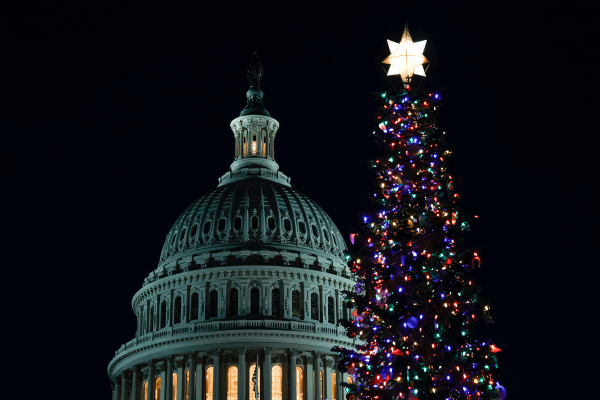People across the nation and world have directed their attention to a federal courtroom in Tucson, Ariz., for the past week and a half. Dr. Scott Warren is defending himself against three felony charges including conspiracy to transport and harbor migrants — charges that could add up to 20 years in prison. Warren teaches geography at the Tohono O’odham Community College, and is a humanitarian aid volunteer with No More Deaths and Samaritans in Ajo, Ariz. An obvious question compels our attention: “Why is the U.S. government prosecuting criminal charges against a humanitarian aid volunteer?”
On the very same day that Warren was arrested at the No More Deaths humanitarian aid base camp, the organization had released the “Disappeared” report documenting that U.S. Border Patrol agents “are responsible for the widespread interference with essential humanitarian aid.” The report documented the destruction of over 3,500 gallons of water in the desert borderlands between 2012 and 2015, with videos of Border Patrol agents slashing gallons of water with a knife and intentionally destroying life-saving caches of food.
This case reminds some of the older volunteers with No More Deaths of another federal courtroom in Tucson that also drew the attention of the nation and the world in 1985: The Sanctuary Trial.
Eleven defendants, including myself, were charged with various felony crimes including harboring and conspiracy. All the defendants were as unlikely criminals as Warren. Among us were two Catholic Priests, a Presbyterian Minister, a Catholic Sister, the Director of the Tucson Ecumenical Council, and other volunteers in the Sanctuary Movement.
Sanctuary was a faith-based movement of churches and synagogues across the nation to protect refugees fleeing the death squads, torture, and massacres of hundreds of villages in Central America.
In a press conference after eight of the 11 defendants were convicted, Darlene Nicgorski, one of the activists stated, "If I am guilty of anything, I am guilty of living the Gospel."
During the trial, defendants could not testify about their faith on their own behalf or present any evidence about the 1980 Refugee Act, conditions in El Salvador or Guatemala, or the Geneva Conventions on wartime humanitarian obligations. A subsequent civil suit against the Attorney General of the U.S. filed by churches succeeded in forcing the government to cease all deportations of undocumented refugees to El Salvador and Guatemala and to grant them temporary protected status in the U.S.
For thousands of immigrants, the Sonoran Desert borderlands, canyons, and valleys have literally become “the valley of the shadow of death.” Humanitarian Aid organizations like No More Deaths and Samaritans have responded with thousands of volunteers committed to saving lives out of ancient and sacred traditions of desert hospitality.
The Bible was written over centuries by a people who knew that access to water, food, and rest were a matter of life and death in the deserts of the Middle East. And so they enshrined the stories of ritual hospitality throughout sacred scripture.
In Genesis, Abraham and Sarah provide hospitality, water, food, and rest to three strangers who appear out of the desert “in the heat of the day.” Abraham is blessed by God. Israel is commanded by God nearly 40 times in the Torah to “love the alien as yourself.” Psalm 23 describes the practice of desert hospitality as the very nature of God: “Even though I walk through the valley of the shadow of death… you prepare a table before me…, you anoint my head with oil: My cup overflows.”
In the Gospels, Jesus teaches the parable of the Good Samaritan to define love of neighbor on a deadly desert trek. Then he sets the standards by which the lives of the faithful will be judged: “I was hungry, I was thirsty, I was a stranger… And as you did it unto the least of these, you did it to me.”
Beyond the biblical justifications, both No More Deaths and Samaritans are organizations dedicated to the principles and standards of The Code of Conduct for the International Red Cross and Red Crescent Movement and Non-Governmental Organisations in Disaster Relief. Two of those principles are foundational:
1. The humanitarian imperative comes first. The right to receive humanitarian assistance, and to offer it, is a fundamental humanitarian principle.
2. Governments should recognize and respect the independent humanitarian and impartial actions of non-governmental humanitarian aid agencies.
As Warren’s trial continues, the presiding federal judge has indicated that he will hear testimony and evidence of his faith and ethics grounded in ancient rituals of desert hospitality in court. Most importantly, Warren’s legal team will present documented evidence to the court of the thousands of human remains that have been found in the Sonoran Desert. Specifically, the court will hear how the area where Warren was arrested has become Arizona’s “valley of the shadow of death.”
The singular question echoing through the courtroom will not always be, “Why is the U.S. government bringing criminal charges against a humanitarian aid volunteer?” This question will also join the chorus: “What are the sacred values and human rights principles we believe?”
Got something to say about what you're reading? We value your feedback!






